The Top Cybersecurity Certifications for Small Business IT Professionals
Tuesday, July 5, 2022

As a small business IT professional, you know how important cybersecurity is in today's digital landscape. With cyber threats on the rise, it's essential to stay informed and prepared. One way to do this is by obtaining cybersecurity certifications, demonstrating your expertise and commitment to protecting your business.
In this blog post, we'll explore the top cybersecurity certifications tailored to small business IT professionals.
Factors to Consider When Choosing a Cybersecurity Certification
Before diving into the certifications, consider these factors to ensure you choose the right one for your needs:
Relevance to small business IT roles
Industry recognition and credibility
Cost and time investment
Prerequisites and experience requirements
Top Cybersecurity Certifications for Small Business IT Professionals
CompTIA Security+
This certification covers essential cybersecurity concepts and best practices, making it an excellent starting point for IT professionals.
Benefits include a solid foundation in cybersecurity and wide recognition in the industry.
Cost: The exam fee is approximately $370, plus the cost of study materials and training courses, which can range from $100 to $1,000 or more.
Time: Most candidates spend 1-3 months preparing for the exam, studying part-time while working. The exam itself is 90 minutes long and consists of a maximum of 90 questions.
Certified Information Systems Security Professional (CISSP)
CISSP is a globally recognized certification for experienced security professionals, covering various domains such as risk management and network security.
Benefits include increased credibility and the potential for career advancement.
Cost: The exam fee is around $749, and study materials and training courses can cost between $500 and $5,000 or more.
Time: Preparation time varies, but most candidates spend 3-6 months studying for the exam. The exam is 3 hours long and consists of 100-150 questions. Keep in mind that the CISSP requires a minimum of 5 years of cumulative, paid, full-time work experience in at least two of the eight domains of the (ISC)² CISSP Common Body of Knowledge (CBK).
Certified Ethical Hacker (CEH)
CEH focuses on the skills and techniques used by ethical hackers to identify vulnerabilities in systems and networks.
Benefits include a comprehensive understanding of hacking methodologies and improved defense capabilities.
Cost: The exam fee is around $1,199, which includes access to the official online self-paced training course. Additional study materials and training courses can range from $100 to $2,000 or more.
Time: Most candidates spend 2-4 months preparing for the exam, studying part-time. The exam is 4 hours long and consists of 125 multiple-choice questions.
Certified Information Security Manager (CISM)
CISM targets IT professionals responsible for managing and overseeing information security within an organization.
Benefits include enhanced managerial skills and the ability to develop robust security policies and procedures.
Cost: The exam fee is around $760 for ISACA members and $960 for non-members. Study materials and training courses can range from $200 to $3,000 or more.
Time: Preparation time varies, but most candidates spend 3-6 months studying for the exam. The exam consists of 150 questions and has a time limit of 4 hours. A minimum of 5 years of information security management experience is required, with at least 3 years of experience in the role of a CISM.
Certified Cloud Security Professional (CCSP)
CCSP addresses the unique challenges of securing cloud environments and is ideal for IT professionals working with cloud-based services.
Benefits include increased expertise in cloud security and staying ahead of emerging threats.
Cost: The exam fee is around $599. Study materials and training courses can range from $40 to $4,000 or more.
Time: Most candidates spend 3-6 months preparing for the exam, studying part-time while working. The exam is 3 hours long and consists of 125 questions.
These costs and time estimates can vary based on factors such as geographic location, training providers, and individual study habits. Additionally, some certifications may require periodic renewal, which might involve additional costs and time investments. Make sure you do your homework on each certification to fully understand the specific requirements and costs involved.
Tips for Preparing and Passing Cybersecurity Certification Exams
To boost your chances of success, follow these tips:
Utilize official study materials and guides
Participate in online forums and discussion groups
Attend training courses and workshops
Take practice exams and simulate test conditions
Is Cybersecurity Certification Necessary for IT Professionals?
As an IT Manager at a small business, having a solid understanding of cybersecurity is undoubtedly important. However, whether you should pursue a cybersecurity certification depends on several factors, including your current level of expertise, your professional goals, and your organization's needs.
Here are some points to consider when deciding if a cybersecurity certification is necessary for you:
Current expertise: If you already have a strong foundation in cybersecurity and have been effectively managing your organization's security, a certification may not be immediately necessary. However, if you feel that there are gaps in your knowledge or you want to stay updated on the latest trends and best practices, pursuing a certification could be beneficial.
Professional goals: Obtaining a cybersecurity certification can help advance your career, demonstrate your commitment to the field, and potentially open up new opportunities. If you aspire to move into a more specialized cybersecurity role or take on more significant security responsibilities, obtaining a certification could be a strategic move.
Organizational needs: Consider your organization's current and future cybersecurity needs. If your company is growing or handling more sensitive data, investing in a certification can help you better protect the business from potential threats. Additionally, having certified professionals on staff can help build trust with clients and partners who value strong security practices.
Resource availability: Pursuing a cybersecurity certification requires time, effort, and financial investment. Assess whether you have the necessary resources and if the benefits of obtaining a certification outweigh the costs.
While a cybersecurity certification may not be strictly necessary for every IT Manager, it can provide valuable knowledge and skills, enhance your professional credentials, and better prepare you to manage your organization's cybersecurity needs.
Weigh the factors mentioned above to decide if pursuing a certification is the right choice for you.
Wrapping Up
The rapidly evolving world of cybersecurity demands that IT professionals engage in continuous learning to stay ahead of the curve. Obtaining cybersecurity certifications can be a valuable investment for IT professionals and provide an excellent foundation to protect your business's digital assets. However, the dynamic nature of cybersecurity threats means that IT professionals must always be on their toes and update their knowledge and skills regularly.
While certifications and continuous learning are essential, partnering with a cybersecurity service can be the most effective way to achieve comprehensive protection for your business. By collaborating with experts in the field, small businesses can leverage their specialized knowledge, experience, and resources to safeguard their sensitive information and operations.
This partnership not only reduces the burden on in-house IT staff but also ensures that your business remains secure and resilient in the face of ever-evolving threats.













